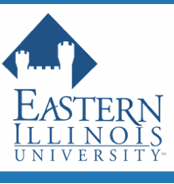Start Date
16-10-2020 12:00 PM
End Date
16-10-2020 12:50 PM
Document Type
Presentation
Abstract
The Combahee River Collective (1986) may have been one of the first groups to describe the complex interrelationships among social influences that overlap, intersect, converge and combine to directly and indirectly affect the lives of individuals and the groups to which they belong. Later theorists and activists (Cooper, 2017; Crenshaw, 2006; Hooks, 1994) have elaborated on the nature of these social forces which include race, ethnicity, class, religion, gender, sexuality, ability status, national/citizenship status, age, and others. Examining the ways that these social forces limit or advance the life decisions and opportunities of individuals and their social groups sheds light on how marginalized groups may share common points of struggle. An intersectional approach may also allow groups to perceive the value of forming coalitions to work toward common goals and dismantle common obstacles. Using the lens of intersectionality, this panel will focus on best practices to address inequities in two areas of access to higher education: lack of persistence in STEM disciplines and concerns with transition from secondary to post-secondary education for students with disabilities.
Creative Commons License

This work is licensed under a Creative Commons Attribution-Noncommercial-No Derivative Works 4.0 License.
Intersectionality as a Framework to Develop Best Practices to Improve Access to Higher Education for Marginalized Groups
The Combahee River Collective (1986) may have been one of the first groups to describe the complex interrelationships among social influences that overlap, intersect, converge and combine to directly and indirectly affect the lives of individuals and the groups to which they belong. Later theorists and activists (Cooper, 2017; Crenshaw, 2006; Hooks, 1994) have elaborated on the nature of these social forces which include race, ethnicity, class, religion, gender, sexuality, ability status, national/citizenship status, age, and others. Examining the ways that these social forces limit or advance the life decisions and opportunities of individuals and their social groups sheds light on how marginalized groups may share common points of struggle. An intersectional approach may also allow groups to perceive the value of forming coalitions to work toward common goals and dismantle common obstacles. Using the lens of intersectionality, this panel will focus on best practices to address inequities in two areas of access to higher education: lack of persistence in STEM disciplines and concerns with transition from secondary to post-secondary education for students with disabilities.


Speaker Information
Danielle Bank, M.Ed.
Disability Support Services Coordinator, Academic Enrichment Center, Dominican University, River Forest, IL. Danielle Bank has 15 years of experience in both business and education sectors. After working in human resources, with a focus on recruitment and training, she transitioned to education, earning her M.Ed. in Higher Education Administration at Loyola University Chicago. In 2010, she began serving as Career Counselor at North Central College partnering with students to help them identify and achieve their career goals. Transitioning from her role in Career Development, Bank served as Learning Specialist at Benedictine University, leading Disability Services in the development of policies and programing to ensure educational access for students with an emphasis on self-advocacy and retention. Bank continues to provide students with academic support as the Coordinator for Disability Support Services at Dominican University. She meets students where they are, aiding in study skills development and ensuring they have the tools and resources needed to be successful and persist to graduation.
Manu Kaur, Ph.D.
Professor (Mathematics), Department of Mathematical and Computational Sciences, Benedictine University, Lisle, IL. Manu Kaur is a William B. Scholl endowed science professorial chair at Benedictine University. She grew up in India and taught at the University of Delhi for five years before earning her doctoral degree in mathematics at the University of Illinois, Urbana-Champaign. Her current research interests include mathematics pedagogy and diversity and inclusion in STEM. Through her teaching she aims to make mathematics interesting and accessible to all, irrespective of social and cultural background. A working member of the American Mathematical Society and the Mathematical Association of America, she currently serves on the MAA committee on Technology in Mathematics Education, and on the steering committee for the International Congress on Mathematics Education. In her spare time, she enjoys gardening, traveling and being with her daughters.
Pat Somers, Ph.D., LCPC
Assistant Professor (Clinical Psychology), Director of Intercultural Education, Department of Psychology, Benedictine University, Lisle, IL. Pat Somers is the Director of Intercultural Education at Benedictine University, Lisle, IL. She is an assistant professor in the Master of Clinical Psychology program and teaches graduate courses in ethics, social and cultural foundations (multicultural counseling), and research methodology. She is co-chair of the Inclusion, Diversity, Equity, Action, Advisory Council. Her scholarly interests include the value of social justice education and the integration of the tenets of Catholic Social Teaching into the curriculum and co-curriculum. She is also a Licensed Clinical Professional Counselor. In her free time, she enjoys reading, walking/hiking, stimulating conversation, and almost anything that involves being in nature.